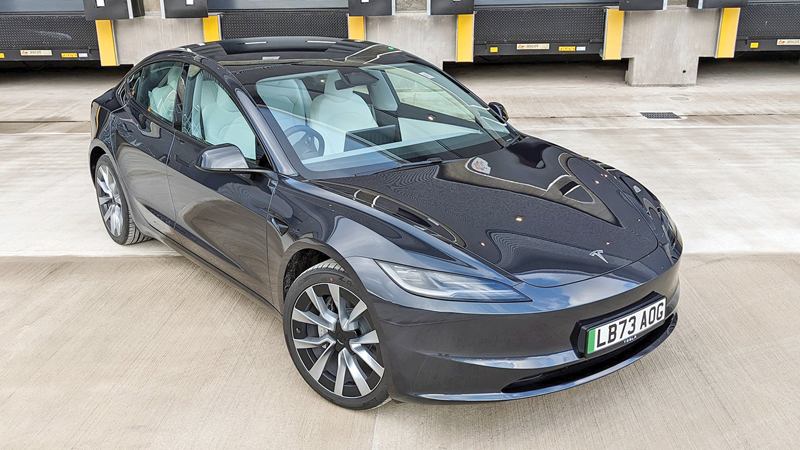 Last February, the Ministry of Labour and Foreign Employment introduced a scheme to provide fully electric vehicle permits to Sri Lankans employed abroad under luxury car tax concessions of up to Rs. 12 million for those who have remitted USD 20,000 or more to the country.
Last February, the Ministry of Labour and Foreign Employment introduced a scheme to provide fully electric vehicle permits to Sri Lankans employed abroad under luxury car tax concessions of up to Rs. 12 million for those who have remitted USD 20,000 or more to the country.
The scheme was introduced in September 2022 and was extended further through separate gazette notifications issued on May 31 last year and on January 24 this year.
However, a Parliamentary Oversight Committee has halted the Extraordinary Gazette notification seeking to extend the period of importing fully electric vehicles for Sri Lankan migrant workers, citing a lack of transparency and alleged discrepancies in the scheme.

Minister Manusha Nanayakkara
On the other hand the Ministry of Labour and Foreign Employment claims that this scheme was a great success and provided a significant incentive for a specific group of people who do not regularly send foreign exchange.
“They prefer to keep their earnings in their respective countries and only send the minimum required amount to Sri Lanka. The scheme motivated them to send more of their earnings, which they invested in real estate, the stock market, and other investments. This helped them obtain a vehicle import license, which they could then sell the car for a profit. Even today, many individuals have not yet remitted their funds and are waiting for the scheme to be extended,” an official from the Ministry said.
When the Committee on Public Finance (CoPF) convened last week under the chairmanship of Dr. Harsha de Silva to consider the extension of the gazette notification that would allow the importation of electric vehicles until September 30, 2024, it was decided to postpone the process of approving the gazette until relevant State institutions involved in providing electric vehicle permits for Sri Lankan migrant workers submit reports to the Committee. “Instructions have been given to provide all information, including the party denoted as the facilitator,” the Committee said.
Misinformation
The Sunday Observer queried the Labour and Foreign Employment Minister Manusha Nanayakkara regarding the matter, and he said that during the last CoPF meeting, there was a lot of misinformation regarding issuing vehicle import licenses or permits for Sri Lankans working abroad to import an electric car.
He said it was clear that the Chairman and its members were misled by a few officials who provided incorrect information due to ulterior motives. The Minister stated that the Customs misled the CoPF with the recent actions of the Sri Lanka Customs Post Clearance Audit Branch (PCAB), which resulted in the collection of a penalty of approximately Rs. 400 to 500 million instead of additional duties.
“There are indications that Customs officials are exaggerating minor discrepancies in descriptions to impose hefty penalties. This focus on punishment is designed to boost their rewards system rather than ensure the Government receives rightful revenue.
“Upon analysing the cusdecs, it becomes apparent that the investigators first penalize the importer and then refer the cusdec to the motor car branch of Customs to process it in the usual manner.
“According to Section 47 of the Customs Ordinance, if the cusdec needs to be correctly submitted, it becomes the Customs’ responsibility to correct the information and recover relevant taxes. Instead of resorting to penalties, which deprive the government of revenue, Customs could have used Section 51 guidelines to adjust declared values below the 85 percent rule outlined in Gazette 1971/10. This would ensure appropriate VAT and Luxury Tax are collected in a legally sound manner,” the Minister said.
Baseless claim
Minister Nanayakkara said that Customs authorities have made a baseless claim that BMW cars manufactured in Germany — a left-hand drive (LHD) country — are first taken to right-hand drive (RHD) countries such as the UK, Japan, and South Africa for registration and then re-exported to Sri Lanka to gain a 15 percent value reduction.
However, this assertion lacks logical and practical support, as the costs and logistics of such a scheme would entirely outweigh any potential benefit.
“It is important to note that electric vehicles (EVs) sold in RHD markets such as the UK and Japan are brand new vehicles. Local laws mandate their initial registration with the relevant authorities. When exporting, this registration must be cancelled (de-registered), a standard and transparent process, not an attempt to defraud customs,” he added.
The Sunday Observer also queried regarding the issues raised by the CoPF concerning the role of the “facilitator in this process.” Accordingly, Nanayakkara said that a facilitator is a registered or reputed vehicle importer, reseller, or local authorized agent appointed for several reasons.
Firstly, there have been numerous instances where unknown individuals have taken substantial amounts as advance payments but have yet to import the vehicle or return the advance payment. Hence, proper screening is done before appointing a facilitator.
Secondly, since the permit holder is abroad and needs help handling all the documentation work on behalf of the beneficiary to obtain the permit, open a Letter of Credit (LC) and other requirements, a facilitator is appointed.
The facilitator’s responsibilities include importing the vehicle, conducting all Customs clearance procedures, and discharging the car.
They provide financial facilities to the permit holder to import the vehicle until the permit holder obtains a lease or a loan after the car reaches Sri Lanka. Lastly, facilitators provide a comprehensive warranty and other after-sales services for the vehicle as EVs are comparatively new to the market, and the permit holders require warranty comfort.
Almost all legacy carmakers (such as Toyota, Mercedes Benz and Porsche) now manufacture electric cars, in addition to more recently established companies such as Tesla, Lucid, BYD and Rivian, which only make electric vehicles. Lucid and Rivian are yet to offer their vehicles in RHD markets.
Dual citizens
Expressing concern whether the workers who do normal jobs have brought such high-end valuable vehicles to the country, the Committee noted certain elements might be misusing the scheme since this is the only opportunity available to import vehicles in a background where the import of vehicles is prohibited.
Commenting on the people who sent money to obtain this permit, the Ministry of Labour and Foreign Employment pointed out that they are not the typical blue-collar job seekers who primarily travel through the Sri Lanka Foreign Employment Bureau. Most eligible individuals were bankers, investment bankers, software engineers, seafarers, consultants, accountants, managers, and other qualified individuals.
This scheme attracted a new group of people: dual citizen holders. They were not previously inclined to send money to Sri Lanka. However, this scheme incentivized them to remit money through official channels, purchase real estate in Sri Lanka, and obtain an electric vehicle import license.
The individuals who benefited from this scheme typically earn between US$ 10,000 and US$ 20,000 per month on average. They also had no reason to send money to Sri Lanka every month, as their families in Sri Lanka did not require it. They either sent it in bulk or every quarter. Overall, this scheme was a significant incentive for them, the Minister said.









